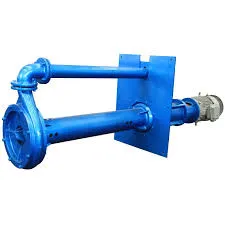Ukrainian
- Afrikaans
- Albanian
- Amharic
- Arabic
- Armenian
- Azerbaijani
- Basque
- Belarusian
- Bengali
- Bosnian
- Bulgarian
- Catalan
- Cebuano
- Corsican
- Croatian
- Czech
- Danish
- Dutch
- English
- Esperanto
- Estonian
- Finnish
- French
- Frisian
- Galician
- Georgian
- German
- Greek
- Gujarati
- Haitian Creole
- hausa
- hawaiian
- Hebrew
- Hindi
- Miao
- Hungarian
- Icelandic
- igbo
- Indonesian
- irish
- Italian
- Japanese
- Javanese
- Kannada
- kazakh
- Khmer
- Rwandese
- Korean
- Kurdish
- Kyrgyz
- Lao
- Latin
- Latvian
- Lithuanian
- Luxembourgish
- Macedonian
- Malgashi
- Malay
- Malayalam
- Maltese
- Maori
- Marathi
- Mongolian
- Myanmar
- Nepali
- Norwegian
- Norwegian
- Occitan
- Pashto
- Persian
- Polish
- Portuguese
- Punjabi
- Romanian
- Russian
- Samoan
- Scottish Gaelic
- Serbian
- Sesotho
- Shona
- Sindhi
- Sinhala
- Slovak
- Slovenian
- Somali
- Spanish
- Sundanese
- Swahili
- Swedish
- Tagalog
- Tajik
- Tamil
- Tatar
- Telugu
- Thai
- Turkish
- Turkmen
- Ukrainian
- Urdu
- Uighur
- Uzbek
- Vietnamese
- Welsh
- Bantu
- Yiddish
- Yoruba
- Zulu
Telephone: +86 13120555503
Email: frank@cypump.com
Гру . 01, 2024 11:56 Back to list
Choosing the Right Submersible Pumps for Effective Septic Tank Management and Maintenance
Submersible Pumps for Septic Tanks An Essential Component for Wastewater Management
Submersible pumps play a crucial role in wastewater management, particularly in systems such as septic tanks. These pumps are designed to be submerged in liquid, allowing for effective movement of wastewater and sewage from the septic tank to the drain field or municipal sewage systems. Their ability to operate efficiently and manage liquid under pressure makes them indispensable in both residential and commercial applications.
Understanding Septic Tanks
Septic tanks are underground chambers made of concrete, fiberglass, or plastic, where wastewater from households is treated. The separation of solids and liquids occurs in the tank, with solids settling at the bottom and lighter substances, like grease and oils, floating to the top. The liquid effluent in the middle is then discharged into the drain field for further treatment through soil absorption. The entire process relies on gravity, but sometimes additional assistance is needed, particularly in situations where the drain field is located at a higher elevation than the septic tank.
This is where submersible pumps come into play. These pumps are carefully constructed to handle the harsh conditions within a septic tank, as they are designed to pump solids-laden wastewater. They operate by converting electric power into mechanical energy, which drives the pump impeller, generating flow and pressure to push the effluent out of the tank.
Advantages of Submersible Pumps
1. Energy Efficiency Submersible pumps are typically more energy-efficient than other types of pumps. Since they are submerged in the liquid, they don’t need to work as hard to draw water, leading to reduced energy costs over time.
2. Space-Saving Design These pumps can be installed directly into the septic tank, freeing up valuable space above ground. This is especially beneficial for properties with limited space or where aesthetic considerations are important.
3. Reliability High-quality submersible pumps are designed for durability and can handle the challenging conditions within septic systems. They are resistant to corrosion and can operate effectively over long periods with minimal maintenance.
4. Automatic Operation Many submersible pumps come equipped with float switches that automatically activate the pump when the water level rises to a predetermined height. This feature ensures that the pump operates only when needed, further conserving energy.
submersible pumps for septic tanks

5. Versatile Applications Submersible pumps can be used in various applications, including residential septic systems, commercial septic systems, and even for dewatering applications in construction sites.
Choosing the Right Submersible Pump
When selecting a submersible pump for a septic tank, several factors should be considered
1. Pump Size It is essential to choose a pump that can handle the volume of effluent produced by the household or facility. The pump should have an appropriate flow rate (measured in gallons per minute) and head (the height to which the waste can be pumped).
2. Material Construction Look for pumps made from corrosion-resistant materials, as they will be exposed to harsh wastewater that can cause wear over time. Stainless steel and thermoplastic materials are often preferred.
3. Power Source Most submersible pumps operate on electricity. However, in areas prone to power outages, consider pumps that can be operated with a backup generator. Some models also come with dual-voltage options.
4. Maintenance Requirements While submersible pumps require less maintenance than other types, it is still crucial to consider how easy it is to access the pump for routine checks and repairs.
5. Brand Reputation Choosing a reputable brand with positive reviews can ensure the reliability and longevity of the pump.
Conclusion
Submersible pumps are a vital component of septic tank systems, ensuring proper wastewater management and helping to maintain the health of both the property and the surrounding environment. By understanding their function, advantages, and the criteria for selection, homeowners and property managers can make informed decisions to optimize their wastewater systems. Investing in a good quality submersible pump can lead to improved efficiency, lower maintenance costs, and peace of mind in effective wastewater management.
-
Heavy-Duty Mining Sludge Pumps - Wear-Resistant Slurry Handling
NewsAug.02,2025
-
Horizontal Split Case Pump with GPT-4 Turbo | High Efficiency
NewsAug.01,2025
-
ISG Series Pipeline Pump - Chi Yuan Pumps | High Efficiency, Durable Design
NewsAug.01,2025
-
Advanced Flue Gas Desulfurization Pump with GPT-4 Turbo | Durable & Efficient
NewsJul.31,2025
-
ISG Series Vertical Pipeline Pump - Chi Yuan Pumps | Advanced Hydraulic Design&Durable Construction
NewsJul.31,2025
-
ISG Series Vertical Pipeline Pump - Chi Yuan Pumps | Energy Efficient & Low Noise
NewsJul.31,2025










